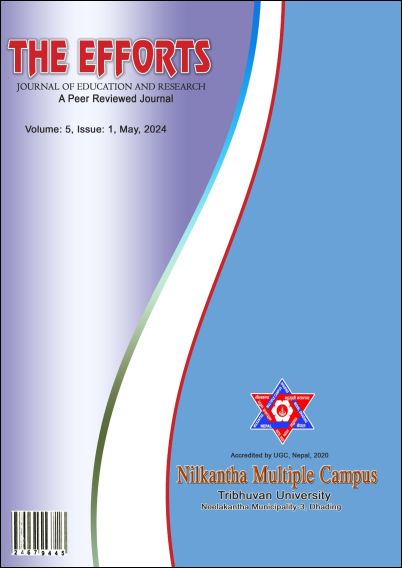Women Investors and Financial Literacy in Nepal
DOI:
https://doi.org/10.3126/ejer.v5i1.65643Keywords:
Financial literacy, Financial Behavior, Financial Attitude, Investment Knowledge, Nepalese women investorAbstract
Abstract Financial literacy refers to the ability to understand how money operates. The primary objective of this study is to investigate the factors influencing financial literacy among Nepalese women investors. The study aims to explore how financial attitudes, financial behaviors, subjective norms, intentions toward investment, and knowledge about investment products affect financial literacy among Nepalese women investors. Employing a descriptive and exploratory research design, this study considers all women who are investors in NEPSE as the population of interest. Among these women investors, a sample of 372 was randomly selected after preliminary observations were conducted to identify potential respondents. Data was collected through a set of questionnaires distributed to the respondents. The study revealed significant positive correlations among financial attitudes, financial behaviors, subjective norms, intentions toward investment, and knowledge about investment products as independent and financial literacy as dependent variable under study. Additionally, the regression analysis showed that financial attitudes, financial behaviors, subjective norms, intentions toward investment, and knowledge about investment products had a significant positive impact on financial literacy among Nepalese women investors.
Downloads
Downloads
Published
How to Cite
Issue
Section
License
All rights reserved. No part of this journal may be reproduced in any form or by any electronic means, including information storage and retrieval system, without prior permission from the publisher.




